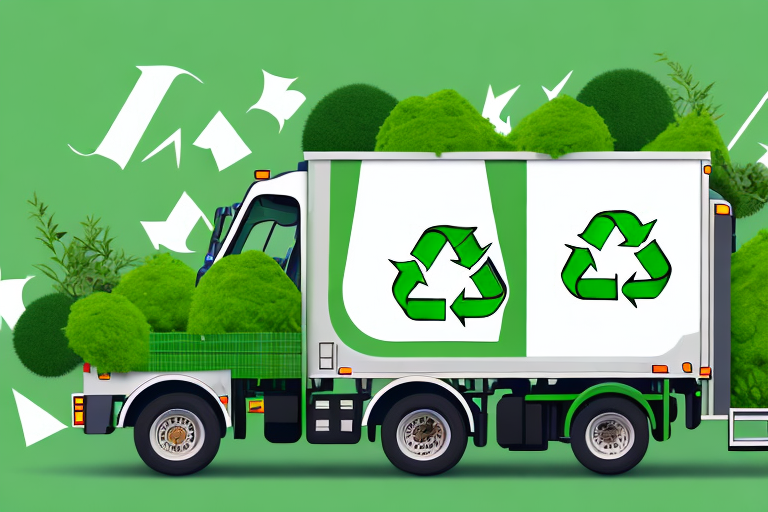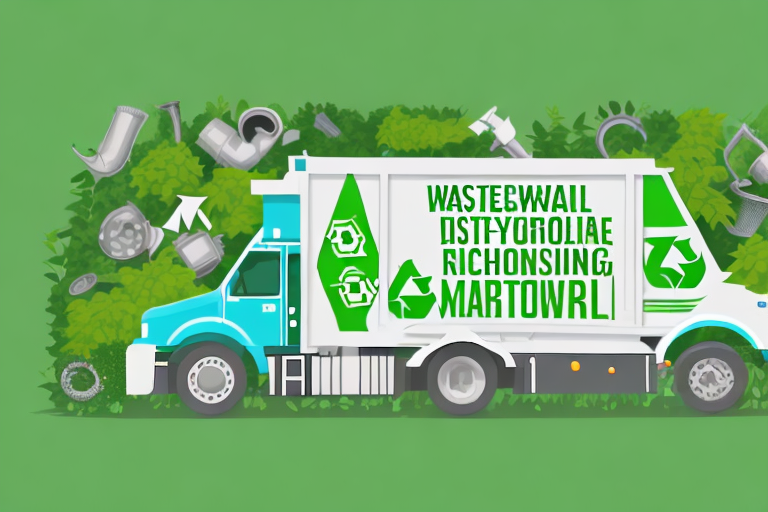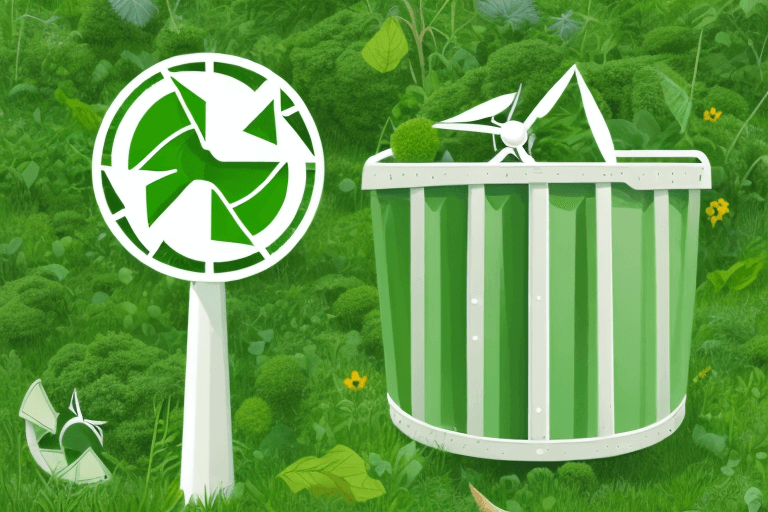Waste management has become a critical issue in our modern world. With the increasing population and the rapid pace of consumption, responsible waste removal has become more important than ever. The three R’s — Reduce, Reuse, and Recycle — have emerged as the cornerstone of the green philosophy in waste removal. Understanding the significance of these principles and implementing them in our daily lives can make a substantial impact on the environment and create a sustainable future.
Understanding the Three R’s: Reduce, Reuse, Recycle
Before delving into the specifics of each principle, it’s essential to grasp the fundamental concepts behind the three R’s. Reduce focuses on minimizing waste generation by cutting down on unnecessary consumption. Reuse emphasizes finding new purposes for items rather than discarding them. Finally, recycling involves processing waste materials into new products, decreasing the need for virgin resources.
The Importance of Reducing Waste
The first step towards responsible green waste removal company is reducing waste generation. By adopting a mindset of mindful consumption, we can significantly decrease the waste that ends up in landfills or incinerators. Strategies such as opting for reusable products, buying in bulk, and avoiding single-use items can make a substantial difference.
Reducing waste not only benefits the environment but also has economic advantages. When we reduce waste, we save money by avoiding unnecessary purchases and minimizing disposal costs. Additionally, reducing waste helps conserve natural resources, such as water, energy, and raw materials, which are essential for the production of goods.

There are various ways to reduce waste in our daily lives. We can start by practicing conscious shopping, only buying what we truly need and avoiding impulse purchases. Planning meals and buying groceries accordingly can also help minimize food waste. Additionally, repairing and maintaining our belongings instead of replacing them can extend their lifespan and reduce waste.
Strategies for Effective Reuse
While reducing waste is invaluable, reusing items takes the green philosophy one step further. Instead of disposing of items after a single use, we should explore creative ways to repurpose them. Whether it’s repurposing glass jars as storage containers or revamping old furniture, there are numerous opportunities to give items a second life before recycling or discarding them.
Reusing not only reduces waste but also promotes resource conservation. When we reuse items, we reduce the demand for new products, which require the extraction of raw materials and energy-intensive manufacturing processes. By extending the lifespan of items, we contribute to a more sustainable and circular economy.
There are countless ways to incorporate reuse into our daily lives. Donating clothing and household items to charities or thrift stores allows others to benefit from them. Repairing and refurbishing electronics, appliances, and furniture can save money and prevent these items from ending up in landfills prematurely. Additionally, creative DIY projects can transform old items into unique and functional pieces.
Recycling: A Key to Sustainable Living
Recycling plays a vital role in responsible waste removal. It involves transforming waste materials into new products, conserving resources and energy in the process. By separating and recycling materials such as paper, plastic, glass, and metal, we can significantly reduce the strain on our environment and promote a circular economy.
Recycling not only reduces the amount of waste sent to landfills but also helps mitigate pollution and greenhouse gas emissions. When we recycle materials, we reduce the need for extracting and processing virgin resources, which often involves environmentally damaging practices. Additionally, recycling saves energy compared to producing new materials from scratch.
It’s important to understand the recycling process and follow proper recycling guidelines to ensure the effectiveness of this practice. Different materials require specific recycling methods, and contamination can hinder the recycling process. By educating ourselves on local recycling programs and facilities, we can make informed decisions about what can and cannot be recycled.
Furthermore, supporting products made from recycled materials completes the recycling loop. By purchasing recycled products, we create demand for recycled materials, encouraging the growth of a sustainable market.

The Green Philosophy: A Deeper Dive
While understanding the importance of the three R’s is crucial, it’s also essential to recognize the broader impact of waste on the environment and acknowledge the role of individual responsibility in waste removal.
When we think about waste, it’s easy to overlook the profound environmental consequences that come with improper management. Landfills, for example, are not just a place where trash goes to disappear. They are a significant source of greenhouse gas emissions, particularly methane. Methane is a potent greenhouse gas that contributes to climate change, trapping heat in the atmosphere and exacerbating global warming. By not managing waste responsibly, we are inadvertently contributing to the very environmental issues we strive to combat.
But the impact of waste goes beyond climate change. Improper waste disposal can contaminate soil and water sources, posing risks to both human health and ecosystems. When waste seeps into the ground, it can pollute groundwater, making it unsafe for consumption. This contamination can have far-reaching consequences, affecting not only humans but also the delicate balance of ecosystems. The toxins present in waste can harm plants and animals, disrupting the natural order and leading to a loss of biodiversity.
So, what can we do to address these environmental risks? The answer lies in individual responsibility. Each one of us has the power to make a difference through our daily choices and actions. By adopting responsible waste removal practices, we can mitigate the adverse effects of waste on the environment.
When we talk about individual responsibility, it’s essential to recognize the role of consumers. As consumers, we have the power to influence the market and drive change. By making conscious decisions, such as buying only what we need and avoiding excessive packaging, we can reduce the amount of waste generated. Additionally, supporting businesses that prioritize sustainability and environmentally friendly practices sends a clear message to the market that we demand more responsible waste management.
But individual responsibility goes beyond consumer choices. It also involves advocating for change and holding policymakers accountable. By raising awareness about the environmental impact of waste and pushing for legislation that promotes responsible waste management, we can create a more sustainable future for ourselves and future generations.
In conclusion, understanding the broader environmental impact of waste and embracing individual responsibility are crucial steps in adopting the green philosophy. By recognizing the consequences of improper waste management, we can make informed choices and take actions that contribute to a more sustainable and environmentally friendly world.

Implementing Responsible Waste Removal Practices
To actively incorporate the green philosophy into our daily lives, there are specific tips and innovative approaches that we can adopt. By implementing responsible waste removal practices, we not only contribute to a cleaner environment but also inspire others to follow suit.
Tips for Reducing Household Waste
Reducing waste at home starts with small changes. Opting for reusable alternatives to single-use products like water bottles, coffee cups, and shopping bags can significantly reduce waste production. Additionally, being mindful of our consumption habits and only purchasing what we truly need can help minimize waste. Composting organic waste and minimizing food waste are also effective measures that can be easily incorporated into our daily routines.
When it comes to food waste, meal planning and proper storage techniques can go a long way. Planning meals in advance helps prevent overbuying and ensures that all ingredients are used efficiently. Storing food properly, such as keeping fruits and vegetables in the refrigerator and using airtight containers for leftovers, helps extend their freshness and reduces the likelihood of spoilage.
Furthermore, embracing the concept of “reduce, reuse, and recycle” can guide our waste reduction efforts. Before throwing something away, we should consider if it can be repurposed or donated. For example, old clothes can be repurposed into rags or donated to charitable organizations. By giving items a new purpose and extending their lifespan, we reduce the amount of waste that ends up in landfills.
Innovative Ways to Reuse Everyday Items
Thinking outside the box enables us to find inventive ways to reuse everyday items. Repurposing old clothes into rags is not only a sustainable option but also a cost-effective one. These rags can be used for cleaning, dusting, or even as washable napkins. Similarly, glass jars can be repurposed for storage purposes. They can be used to store dry goods like grains, nuts, or spices, or even as containers for homemade jams or pickles.
Another creative way to reuse everyday items is by transforming wine corks into unique crafts. With a little imagination and some basic crafting supplies, wine corks can be turned into coasters, bulletin boards, or even small planters. These crafts not only add a touch of uniqueness to our living spaces but also contribute to waste reduction by giving wine corks a new life.
Moreover, reusing paper and cardboard is another sustainable practice. Instead of throwing away old newspapers or cardboard boxes, they can be used for various purposes. Old newspapers can be used for wrapping fragile items or as a protective layer when painting. Cardboard boxes can be transformed into storage organizers or even into a playhouse for children.
Making Recycling a Habit
Recycling should become second nature in our daily routines. Setting up designated recycling bins in our homes and workplaces is a simple yet effective step towards establishing a recycling habit. These bins can be labeled for different types of recyclable materials, such as paper, plastic, glass, and metal, to ensure proper sorting.
Familiarizing ourselves with local recycling guidelines is also crucial. Different communities may have specific requirements or restrictions when it comes to recycling. By understanding these guidelines, we can ensure that our recycling efforts are effective and aligned with the local waste management system.
Furthermore, educating others about the importance of recycling can have a ripple effect. By sharing our knowledge and experiences, we can inspire our friends, family, and colleagues to adopt responsible waste removal practices. This can be done through conversations, social media posts, or even organizing community events focused on recycling and waste reduction.
In conclusion, implementing responsible waste removal practices is an essential step towards creating a more sustainable future. By reducing household waste, finding innovative ways to reuse everyday items, and making recycling a habit, we can contribute to a cleaner and greener environment for generations to come.
The Future of Responsible Waste Removal
Looking ahead, it is essential to explore technological advancements and policy changes that will shape the future of waste management.
Technological Advances in Waste Management
The development of advanced waste treatment technologies, such as anaerobic digestion and plasma gasification, offers promising solutions for more efficient waste management. These technologies can help extract energy from waste, contributing to renewable energy sources and reducing the volume of waste that goes to landfills.
Policy Changes and Their Impact on Waste Removal
Government policies play a crucial role in driving responsible waste removal. Stricter regulations on waste disposal, incentivizing recycling initiatives, and supporting sustainable packaging solutions are some examples of policy changes that can facilitate a sustainable waste management system.
The Role of Education in Promoting Responsible Waste Removal
Education plays a vital role in promoting responsible waste removal practices. By educating individuals from a young age about environmental conservation and the importance of the three R’s, we can foster a generation of environmentally conscious individuals who will prioritize responsible waste removal in their daily lives.
In conclusion, adopting the green philosophy of Reduce, Reuse, and Recycle is crucial in achieving responsible waste removal. By understanding the significance of these principles and implementing them in our daily lives, we can contribute to a sustainable future. Each small action, whether it be reducing our consumption, reusing items creatively, or recycling materials, has a far-reaching impact on the environment. By embracing responsible waste removal practices, we can pave the way for a greener and more sustainable world.
More to read: Enhancing Your Yard through Expert Stump Grinding

